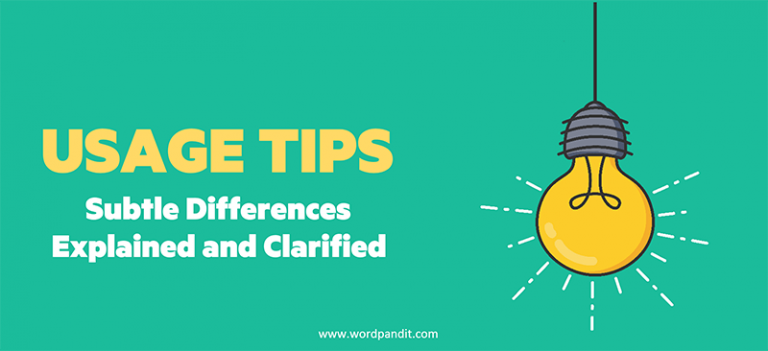Alternate vs. Alternative: How to Finally Get Them Straight ✨📚
Have you ever found yourself confused between “alternate” and “alternative”? 🤔 You’re not alone. These two words are often mixed up because they seem to serve a similar purpose, but they have subtle distinctions that can change the meaning of your sentence. Getting them right can make a world of difference when you’re trying to communicate clearly. Let’s dive in and sort this out once and for all—with a touch of humor, of course! 😄
These words may seem interchangeable, but they’re not. Understanding the distinction between them will improve your communication skills, whether you’re writing an email, drafting a report, or even just having a conversation. ✍️ The subtle nuances can change the entire meaning of what you’re trying to say, so let’s make sure you’re using them the right way! 👍
What Do They Mean? 🤓
- Alternate (\ˈɔl-tər-neyt\): 🔄 To take turns or happen in a repeated pattern. It can also mean one of two choices that are regularly interchanged. For example, “The lights alternate between red and green.” 🚦 It’s like the back-and-forth rhythm of a swing. You alternate when you want to emphasize that something takes turns.
- Alternative (\awl-ˈtər-nə-tiv\): ➡️ A different option or choice. It’s about providing an option to something, often implying a substitute. For example, “We need to find an alternative solution to the problem.” 💡 An alternative is what you need when Plan A fails, and you’re forced to go with Plan B. It’s like a backup plan or a different route to the same destination. 🛤️
A Quick Etymology Lesson 🧐
- Alternate comes from the Latin alternare, meaning “to do by turns.” 🔄 This origin gives it that sense of taking turns or back-and-forth movement.
- Alternative finds its roots in the Latin alternativus, meaning “offering a choice.” 🤝 While both come from the same base, they evolved slightly differently, and now they mean distinct things in English.
Examples to Make It Stick 📝
- Alternate: “She decided to alternate between jogging and walking during her workout.” 🏃♀️🚶♀️
- Alternative: “If the weather is bad, we’ll need an alternative venue for the party.” 🎉🌧️
Imagine this: You’re at a traffic light that is set to alternate (🚦) between green and red. If that light breaks, the city needs an alternative plan to control traffic. 🚧 Got it? Great! 👍 Now you know that alternate means switching back and forth, while alternative gives you a different option when something isn’t working.
Synonyms and Antonyms 📖
- Alternate: Synonyms include “rotate,” “exchange,” and “take turns.” 🔄 Antonyms could be “steady” or “unvarying.” ⚖️
- Alternative: Synonyms include “option,” “substitute,” and “choice.” 🤔 Antonyms might be “necessity” or “required.” 🚫
The Differences in Simple Terms 💡
Alternate is used when talking about taking turns or something happening in a repeated cycle. Think about how day and night alternate. 🌞🌜 It’s like a ping-pong game where players take turns hitting the ball. 🏓
Alternative is an option or a substitute. For example, almond milk is an alternative to cow’s milk. 🥛 It’s like saying, “If you don’t want this, you can have that instead.”
A Classic Mix-Up 🚗
“She found an alternate route” implies switching between two routes repeatedly, whereas “She found an alternative route” means she found a different way altogether. 🛣️ Context is everything!
Contextual Usage: In One Sentence ✒️
“If you want to alternate between working from home and the office, 🏠🏢 an alternative schedule might need to be arranged.” 🗓️ Here, both words are used correctly—one for taking turns, the other for a different option.
Mnemonic Device: How to Remember? 🤔💡
- Alternate: Think of it as A and A (alternating action). 🔄
- Alternative: Think of it as A or A (choosing between options). ➡️
Other Word Pairs to Explore 📚
- Affect vs. Effect: Another classic confusing pair. 🤯
- Stationary vs. Stationery: One means to stay still, 🛑 and the other is for writing! ✉️🖊️
- Compliment vs. Complement: One’s a kind word, 💬😊 the other completes something else. 🥂
In Summary ✅
The key takeaway here is simple: use alternate when talking about things that take turns, and use alternative when you’re referring to another option. ✅ Now, you’re ready to use these words like a pro—no more confusion! 💪
Understanding the difference will not only make your writing clearer but also enhance the precision of your speech. 🗣️ No more mix-ups when explaining plans or options to friends, family, or colleagues. 👨👩👧👦
Test Your Knowledge: Confusing Words – Alternate vs. Alternative
1. He decided to ___ between piano practice and guitar lessons. 🎹🎸
2. We need an ___ solution if this doesn’t work out. 🤔
3. “Alternate” means providing a substitute option. ❌
4. Which word is a synonym of “Alternative”? 🤷♂️
5. They chose an ___ route due to heavy traffic. 🚗🛑
6. Which word describes something that happens every other day? 📅
7. They decided to ___ between the main road and an ___ path. 🚧
8. Which word comes from the Latin ‘alternativus,’ meaning ‘offering a choice’? 📜
9. “Alternative” can be used to describe taking turns. ❌
10. The teacher decided to ___ her teaching methods while also considering an ___ assignment. 🔄













